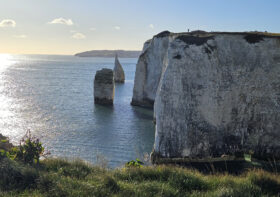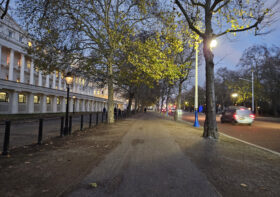A quickfire ‘personal canon’

The other evening I was in Lewes listening to Jackie Wills and Grace Nichols being interviewed by Mark Hewitt. One of the topics they discussed was the idea of having a ‘personal canon’, in other words those poets or poetry collections that have either been formative influences, or that you dip into regularly for inspiration. The talk was of how important it was to remember that poetry is very much a matter of personal taste, and that it’s pretty difficult for everyone to agree on ‘the poetry canon’, except perhaps for Shakespeare and a handful of other ‘greats’.
It made me think of the huge variety of ‘exemplar’ poems you come across in poetry workshops. On Grace’s list were Derek Walcott, Elizabeth Jennings and Sylvia Plath. She very cannily declined to mention the names of any living poets, for fear (she said) of upsetting anyone, since many of her contemporaries are her friends.
I started wondering who would be on my list. Of course, like any of those ‘desert island discs’ questions, it becomes impossible to choose between X, Y and Z. So I did it as a kind of ‘quickfire’ exercise – not taking too long to think about, just put down some names and stop when you get to 10. I too have deliberately avoided my contemporaries some of whom I think produce brilliant work. But what will stand the test of time? That feels to me like a key ‘canon’ criterion. Having said that, there are some people on the list who are actually not dead.
So here’s my quick list, at this moment in time, but in no particular order…(*those still alive have an asterisk!)
Ted Hughes – we studied his poetry at school and I fell in love with his work, in particular his poem ‘Hawk Roosting’, waxing lyrical about it in my English exam. Oddly enough I assumed he was dead – when in fact if I’d asked our English teacher she might have been able to secure a visit, since that was a period when Hughes was reading at schools across the country.
Eavan Boland – I came late to the party on this, only discovering the late, great writer after she’d died. Boland broke away from the Irish literary status quo, writing on topics considered ‘unpoetical’ by her male contemporaries. Stunning poetry and inspirational essays.
Geoffrey Chaucer – Although the general prologue to The Canterbury Tales was on the reading list for aforementioned English A level, I wasn’t that engaged to be honest. But encountering House of Fame late in life gave me a new-found enthusiasm for Chaucer. He was educated and cosmopolitan, and yet very English, unafraid to cock a snook at the likes of Dante yet capable of the most glorious poetry. And many of his themes are very much relevant today.
*Mary Ruefle – An absolute one-off. Ruefle is famous for her erasure poetry (of which she’s written a ton) and books of essays. Poet Tania Hershman gave me a copy of The Most of It a few years back – it’s a collection of short prose pieces, although where is the boundary between prose poems and short poetic prose? Either way, her work is so crazy-creative I can’t think of a decent adjective to describe it.
Theresa Hak Kyung Cha – I came Cha’s Dictee via my podcast partner Peter Kenny. It’s a postmodern hybrid collection like no other, and years before its time. A few pages of this and for several hours I’m physically unable to write anything in neat quatrains.
*Kim Addonizio – I devoured her selected poems Wild Nights – vital, sexy, funny, moving, just extraordinary. I always, always get an injection of energy and creativity when I dip into her work.
Walt Whitman – I admit I only really got into Leaves of Grass after singing in a performance of Vaughan Williams’s Sea Symphony, featuring extracts of Whitman’s wonderful, exuberant poetry. I found the whole thing as a PDF on the web, then realised it was 674 pages. So no, I haven’t read it all.
Tomas Transtromer – spare, beautiful, always surprising. A workshopping favourite I know, but for good reason.
*Roger McGough – as a teenager I loved the Liverpool Poets and I still read McGough for his wit and humour. A nice reminder of how a light touch can pack a huge punch in political poetry.
Alfred Lord Tennyson – I never thought I’d be including a Victorian poet in this list, but In Memoriam AHH had a big impact on me, and still serves as a model of how to write about grief.
Others I seem to have left off – oh no! Dante, Heaney, Auden etc etc. Yikes.


